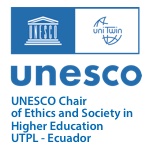Phenomenology as a method for the study of religion
Abstract
With the development of science of religions mid-nineteenth century, where prevailing methodologies positive sciences, he became convinced that the study of the religious fact allowed to be a general, conceptual idea and methodical religious structure. However, the constant contradictions and ideological prejudices of these studies, finished consolidating a new approach in which the phenomenology of religion would develop. In this context, the study of the religious phenomenon becomes relevant, in contrast to the historical and empirical fact of religion.
Downloads
References
Hering, Jean. (2019). Fenomenología y filosofía religiosa: estudio sobre la teoría de la conciencia religiosa. Madrid: Ediciones Universidad San Dámaso [Edición, traducción y notas: Herrero, Francisco Javier y Hernández, Marcelo, Jimmy].
Husserl, Edmund. (1999). Investigaciones Lógicas 2. Madrid: Alianza editorial [editado por: Garcia Morente, Manuel y Gaos, José].
Ruiz, Francisco. T. (2020). «La Experiencia de Lo Sagrado Como Fundamento de La Creencia En Dios En Max Scheler». Boletín de Estudios de Filosofía y Cultura Manuel Mindán 15 (2020), 285–296.
Scheler, Max. (2001). Ética. Nuevo ensayo de fundamentación de un personalismo ético. Madrid: Caparrós [traducción de Hilario Rodríguez Sanz. Introducción de Juan Miguel Palacios].
Scheler, Max. (2007). De lo eterno en el hombre. Madrid: Ediciones Encuentro, S.A. [Traducción por: Marías, Julián y Olmo, Javier].
Solari, Enzo. (2010). La raíz de lo sagrado: contribuciones de Zubiri a la filosofía de la religión. Santiago de Chile: RIL editores.
Szilasi, Wilhelm. (1959). Introducción a La Fenomenología de Husserl. Buenos Aires: Amorrortu [Traducido por Maliandi Ricardo].
Velasco, Juan. Martín. (2006). Introducción a la fenomenología de la religión. Madrid: Editorial Trotta, S.A.
Copyright (c) 2021 ©️ Analysis

This work is licensed under a Creative Commons Attribution-NonCommercial-NoDerivatives 4.0 International License.








